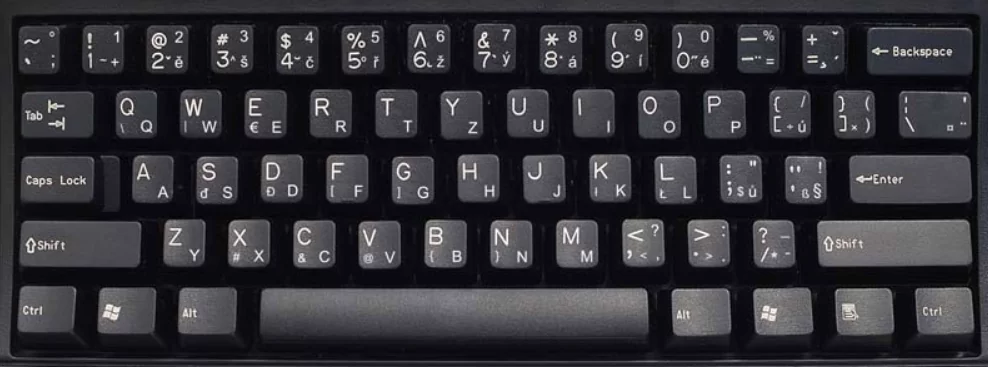The UP Police Online Typing Test is a crucial component of the recruitment process. It evaluates a candidate’s typing speed and accuracy, essential skills for administrative roles within the police department. To excel in this test, a strategic approach coupled with consistent practice is essential.
Familiarize Yourself with the Test Pattern
Before diving into preparation, understanding the test pattern is imperative. Typically, the UP Police Typing Test assesses typing speed in both English and Hindi languages. The aspirants are expected to type a given passage within a specified time frame, testing their accuracy and speed.

Steps to Prepare for the UP Police Online Typing Test
1. Understand the Keyboard Layouts
Familiarize yourself with both the English and Hindi keyboard layouts. Knowing the placement of keys is fundamental to improving typing speed.
2. Enhance Typing Speed
The typing test for UP Police requires a minimum speed of around 25-30 words per minute (WPM) in Hindi or English.
3. Work on Accuracy
Speed is crucial, but accuracy matters equally. Focus on typing without errors. Start slow and gradually build speed without compromising accuracy.
4. Practice Passage Typing
Simulate the test environment by practicing typing passages from newspapers, books, or online resources. Time yourself to ensure you can type within the given duration.
5. Take Mock Tests
Utilize mock tests to assess your progress. Mimicking the actual test conditions will familiarize you with time constraints and boost your confidence.
6. Time Management Tips
As per UP Police guidelines, candidates might be required to achieve a typing speed of, for instance, 25-30 words per minute with an accuracy rate of 95% or above.
UP Police Exam Pattern 2024
- Each subject will be worth 100 marks.
- Maximum Marks for this Exam will be 400 Marks.
- The exam will be of an Objective Type.
- There is no negative marking for any wrong answer.
- Qualifying marks for each subject will be 35%.
- Overall qualifying marks will be 40%.
| Sr. No | Subjects | Maximum Marks |
| 1 | General Hindi | 100 Marks |
| 2 | General Knowledge | 100 Marks |
| 3 | Numerical & Mental Ability Test | 100 Marks |
| 4 | Reasoning and IQ Test | 100 Marks |
Tips for Effective Preparation
- Consistency is Key: Practice regularly, even if it’s for a short duration each day.
- Focus on Weak Areas: Identify your shortcomings and dedicate extra time to improve them.
- Relaxation Techniques: Employ relaxation techniques to avoid nervousness during the test. Deep breathing or meditation can help calm nerves.
Right Approach and Preparation for UP Police Exams
Practice Previous Papers
Reviewing past papers helps understand the exam pattern and focus on important areas.
Time Management
- Regularly take mock tests under timed conditions to improve speed and accuracy.
- During preparation, allocate time for each section based on its weightage in the exam.
- Solve easier questions first to secure marks and then tackle more time-consuming ones.
Negative Marking
- Read Instructions Carefully: Understand the exam pattern and marking scheme to avoid unnecessary deductions.
- Elimination Technique: In multiple-choice questions, eliminate obviously incorrect options to increase the probability of choosing the correct one.
- Guess Wisely: If unsure, make an educated guess rather than leaving a question unanswered.
Physical Fitness Test
- Regular Exercise: Prioritize fitness through regular exercise, focusing on endurance, running, and strength training.
- Practice Test Simulations: Simulate the physical test at home or in a similar environment to build stamina and familiarity.
Preparation and Resources
Mock Tests and Sample Papers
Recommendation of mock tests and sample papers helps candidates simulate the test environment for better preparedness.
Online Courses and Tutorials
Suggesting dedicated online resources aids candidates in learning and mastering the Inscript Keyboard Layout effectively.
Self-Improvement Strategies
Proposing continuous self-improvement methods helps candidates consistently enhance their typing skills.
Conclusion
Preparation for the UP Police Online Typing Test demands dedication, perseverance, and structured practice. Use resources available online, such as typing tutorials, practice exercises, and mock tests, to your advantage. Prioritize consistency and accuracy in your practice sessions to achieve optimal results.
FAQ: UP Police Online Typing Test
What is the format of up police exam?
- General Knowledge/Current Affairs: Questions related to current events, history, geography,politics.
- Numerical Ability: Questions on mathematical topics like arithmetic, algebra, and geometry.
- Reasoning: Logical reasoning, analytical ability, puzzles, and non-verbal reasoning.
- General Hindi: Grammar, comprehension, and language skills.
- Law and Constitution: Questions regarding the Indian legal system, IPC (Indian Penal Code).
How many marks are there in UP Police exam?
The total marks for the UP Police exam typically range between 300 to 400, depending on the specific recruitment and exam pattern set by the Uttar Pradesh Police Recruitment and Promotion Board (UPPRPB).
What is the salary of up police?
- Constables: The starting salary for a UP Police constable ranges from around Rs. 21,700 to Rs. 69,100 per month, depending on the pay scale and allowances.
- Sub-Inspectors (SIs): The salary for Sub-Inspectors in UP Police generally starts from around Rs. 35,400 to Rs. 1,12,400 per month, varying based on the pay scale and allowances.
How can I join UP Police?
- Check eligibility criteria.
- Keep an eye on official notifications for openings.
- Apply online as per instructions.
- Clear written exams and physical tests.
- Attend document verification and medical examination.
- Undergo training upon selection.
How do I become a DSP in UP police?
- Obtain a bachelor’s degree.
- Clear UPSC Civil Services or UPPSC exams.
- Qualify the required selection process.
- Undergo training at police academies upon selection.


